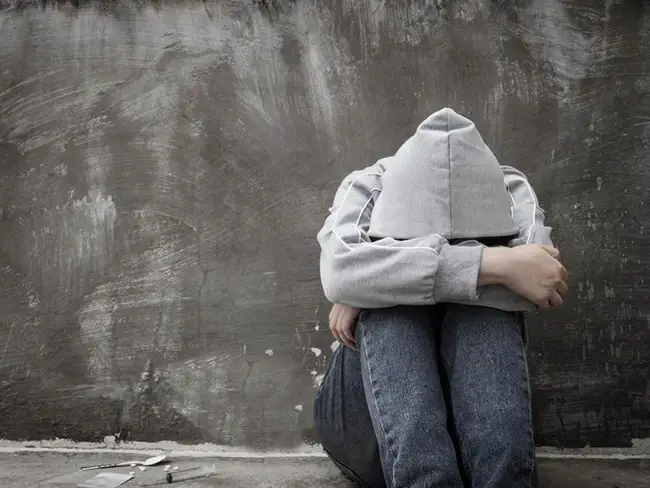What is a dual diagnosis? Mental illness and addiction are two of the most pervasive public health crises in the country. More than 21 million Americans have a substance use disorder, with approximately 1 in 5 Americans experiencing a mental illness. Despite both of these issues impacting this many people, admitting to being an addict/alcoholic and/or having a mental illness is still heavily stigmatized. This is often the driving force behind why people are reluctant to seek professional help.
When professional help is not obtained for either of these conditions, a person can quickly find themselves dealing with problems related to their relationships, career, finances, and more. But when both a mental illness and a substance use disorder are occurring at the same time, these repercussions can come on quickly and much more forcefully. That is because trying to live with a dual diagnosis without getting treatment is extremely painful and can be fatal.
What is a Dual Diagnosis?
So, what exactly is a dual diagnosis? A dual diagnosis is a term used to describe the simultaneous presence of a mental health disorder and a substance use disorder. More than half of all addicts and alcoholics are diagnosed with a dual diagnosis. Both of these conditions produce upsetting symptoms that people often look to self-medicate with mind-altering substances. What ends up happening is that a dangerous cycle develops where a person is using drugs or alcohol and experiencing untreated symptoms of one or more mental disorders. Without the appropriate intervention, this cycle can continue and can become deadly.

Common Dual Diagnoses
A dual diagnosis can include a wide array of co-existing disorders, however, some are more common than others. The following is a list of common dual diagnoses:
Alcohol Use Disorder and Depression
depression and alcohol use disorder often occur together and can worsen each other’s symptoms. It is usually hard to tell which manifests first because these disorders significantly intensify symptoms
Methamphetamine Use Disorder and Post-Traumatic Stress Disorder PTSD
Individuals with a history of trauma may turn to methamphetamine as a coping mechanism, leading to co-existing PTSD and methamphetamine use disorder.
Marijuana Use Disorder and Schizophrenia
Individuals with a genetic predisposition to schizophrenia may increase their risk of developing the illness if they use marijuana regularly.
Opioid Use Disorder and Anxiety
People who suffer from an anxiety disorder often turn to opioids due to their sedative effects. In contrast, individuals with opioid use disorder may experience anxiety and panic attacks, particularly during withdrawal.
Signs and Symptoms of a Dual Diagnosis
Plenty of people have a dual diagnosis and don’t even know that they have one. The disease of addiction and mental illness, when working in concert, can make it extremely difficult to see anything with a clear lens. That is why knowing the signs and symptoms of a dual diagnosis is absolutely critical so that you can help yourself or a loved one when it is needed.
You use drugs to cope with psychological distress
If your psychological wellbeing is dictating your desire to abuse drugs or alcohol, you may have a dual diagnosis. Many mental illnesses, such as depression and anxiety, come along with symptoms that can make living day-to-day a challenge. If you have symptoms of a mental illness and are not properly treating them with therapy, medication, or a combination of both, you are automatically at risk for becoming an addict or an alcoholic. You are likely experiencing a dual diagnosis if you utilize drugs and alcohol to help self-manage the psychological symptoms you have.
You have a family history of mental illness
Mental illness can be something that develops as a result of something environmental. For example, a person can develop posttraumatic stress disorder, or PTSD, after losing their home to a flood or fire. But, mental illness can also develop in response to genetics. Consider your family’s history of mental illness. Do you have family members who have one or more mental illnesses? If so, you are more prone to developing the same or similar mental illnesses. Mental illness can erode away at your resiliency, making it more likely for you to turn to drugs and alcohol to cope.

You feel like you cannot function without drugs or alcohol
You may have a dual diagnosis if you feel like you cannot function without using drugs or alcohol. When a mental illness and a substance use disorder are happening at the same time, you can feel completely out of sorts in regards to your emotions and behaviors. For example, someone with an anxiety disorder who abuses benzodiazepines may feel like they will not be able to handle their feelings of anxiousness without using. You may experience similar thoughts and feelings if you are also having problems functioning without drugs or alcohol.
You become deeply depressed or angry when not using drugs or alcohol
Make no mistake about it — addiction provokes some of the most insidious and dark emotions and behaviors known to man. But typically, someone who is battling only an addiction will not experience significant highs and lows in between their use. This is a common trait of someone who has an underlying mental illness, as drugs and alcohol interact with the brain in ways that offset the brain’s natural chemistry. If this is something you experience, it may be because you have a mental illness like depression, bipolar disorder, anxiety, etc.
You had symptoms of mental illness prior to your substance abuse
It is common for people to think that becoming addicted to drugs and alcohol causes a person to develop symptoms of a mental illness. For many, that is exactly what happens. But, for several others, symptoms of mental illness were present prior to their substance abuse. You may be battling a dual diagnosis if you had symptoms of a mental illness before you began abusing drugs or alcohol. This is likely even more true if you continue to use drugs and/or alcohol to help mitigate the discomfort your symptoms produce.
These are not the only signs and symptoms of a dual diagnosis, as you may also experience the following:
- Changes in behavior
- Continuing to abuse drugs and alcohol despite the risks of doing so
- Becoming isolated from others
- Suicidal thoughts
If you are experiencing any of these symptoms, seek professional help as soon as possible to prevent further distress.
How Do You Treat Dual Diagnosis?
A dual diagnosis requires a detailed and coordinated plan of treatment. The initial step in treating dual diagnosis is to make an accurate analysis. This usually includes a comprehensive assessment conducted by a mental health specialist, who will evaluate the individual’s mental health, past of substance use, and comprehensive medical history.
After the diagnosis has been made, the next step is to construct a plan of action that deals with both the mental health issue and the substance abuse. This could include a mix of medications, therapies, and support groups. Medicines, like antidepressants or antipsychotics, can be prescribed to regulate the symptoms of the mental health issue, while detoxification and rehabilitation can assist the person in overcoming their substance abuse. Behavioral therapies, such as cognitive-behavioral therapy, can help the individual locate and alter negative patterns of thought and behaviors associated with both the mental health issue and substance abuse.

Other than the treatments mentioned, joining 12-step programs or other support groups can give a feeling of belonging and create a system of help while dealing with recovery. It must be noted that managing dual diagnosis is a difficult and long-term journey and the person may need to experiment with different methods and treatments before finding the one that suits them the most. In addition, they may need to continue the treatment for a prolonged period in order to achieve a lasting recovery and balance.
Do You Need Help? Call Us Right Now.
Attempting to live with an untreated dual diagnosis is no way to live. You do not need to face these challenges on a daily basis. If you need help dealing with your mental state and/or your substance use disorder, do not wait any longer. Reach out for professional help by calling us today. We can get you started on the road to recovery.
So, do not let another day pass you by. Call us today to learn more about how we can help you properly manage your dual diagnosis.





